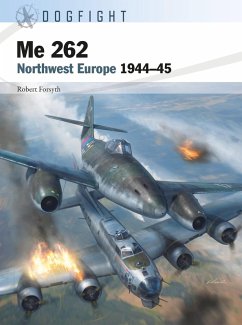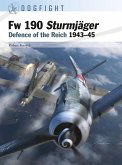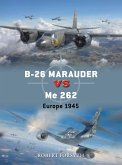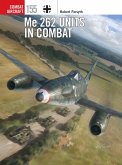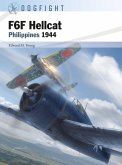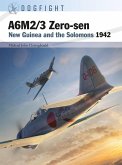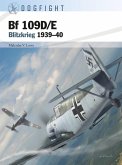Using rare first-hand accounts from Me 262 pilots, Robert Forsyth examines what it was like to fly the world's most advanced interceptor in the deadly skies over Germany in 1944-45.
Right from its operational debut in the summer of 1944, the Me 262 outclassed anything the Allies had in terms of speed and firepower ratio, offering a formidable punch with four 30 mm Mk 108 nose-mounted cannon, and a Jumo 004 jet engine.
The problem the Luftwaffe faced, however, was one of numbers. Towards the end of the war, availability of machines and trained pilots was scarce, and it is only thanks to the exploits of a handful of veteran Jagdwaffe aces such as Adolf Galland, Walter Krupinski and Johannes Steinhoff, that the aircraft made a significant impact on the air war and was the source of considerable concern to the Allies.
Filled with specially commissioned artwork including action-packed ribbon diagrams, battlescenes, armament views and maps, Robert Forsyth offers the definitive technical and historical guide to the state-of-the-art Me 262, using rare photographs and pilots' first-hand accounts.
Right from its operational debut in the summer of 1944, the Me 262 outclassed anything the Allies had in terms of speed and firepower ratio, offering a formidable punch with four 30 mm Mk 108 nose-mounted cannon, and a Jumo 004 jet engine.
The problem the Luftwaffe faced, however, was one of numbers. Towards the end of the war, availability of machines and trained pilots was scarce, and it is only thanks to the exploits of a handful of veteran Jagdwaffe aces such as Adolf Galland, Walter Krupinski and Johannes Steinhoff, that the aircraft made a significant impact on the air war and was the source of considerable concern to the Allies.
Filled with specially commissioned artwork including action-packed ribbon diagrams, battlescenes, armament views and maps, Robert Forsyth offers the definitive technical and historical guide to the state-of-the-art Me 262, using rare photographs and pilots' first-hand accounts.

